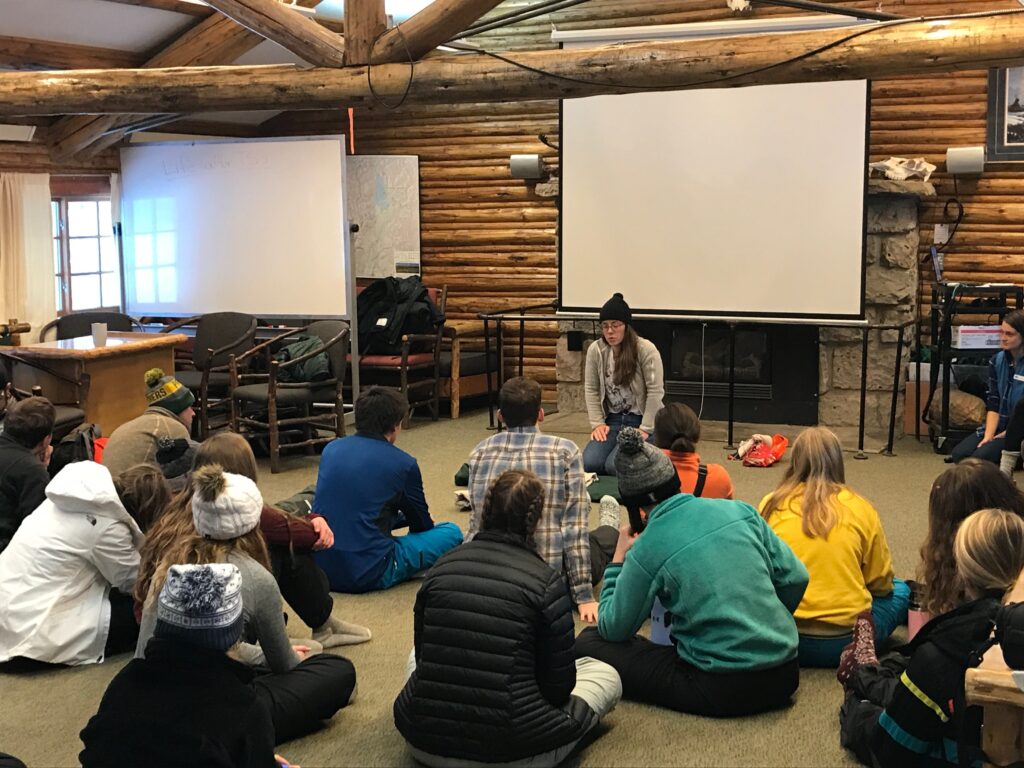Five years ago, when I was a student in the Teton Science Schools Middle School Field Ecology program, it was hard for me to picture the adults who led our group explorations sitting in a classroom of their own. To me, these instructors seemed like they had been teaching forever. Even after I understood that our group leaders were in graduate school I still couldn’t picture them as students. Walking into the Spur Ridge classroom this past winter it all became clear. The graduate students, or “grads”, at Teton Science Schools have spent an immense amount of time fully immersing themselves into learning about how they can facilitate and benefit from transformational place-based education before going out into the field to teach students like me. The strategies the graduate students use echo through not just the Teton Science Schools, but through the entire Jackson Hole community and beyond as these teachers go out into the world and teach in their local communities.
Over the course of my week observing Teton Science Schools Graduate Program I watched them practice a variety of educational methods and theorize about how to apply them to their time teaching visiting students. As both learners in the classroom and educators in the field, the graduate students have a chance to apply their learning in real life scenarios and are able to adapt their teaching styles by working with a diverse array of student groups. Teton Science Schools’ approaches each student not as an empty vessel that absorbs information, but rather as individuals saturated with prior knowledge yearning to build on that understanding, which leads to extremely well-executed learner-centered education.

Teaching educators to see their students as full sponges, saturated in their own thoughts and beliefs, helps grads approach teaching with an intrinsic sense of inquiry and empathy. During my time observing the Graduate Program I participated in two classes: Advanced Instructional Strategies and Ecological Inquiry. These two classes, in tandem with my observations of field programs led by these same graduate students, revealed why Teton Science Schools’ Graduate Program is so effective. Graduate students are able to witness the teaching methods they’re expected to utilize with field students through their own teachers. The outcome – both graduate students, and all of the students they teach during their year in this amazing place, get the full benefit of immersive, place-based education. With an expansive network of 400 graduate program alumni (graduate program network map linked below) working with thousands of students across the United States, the results of the TSS’s commitment to learner-centered education reverberates nationwide and give children role models to guide them through a transformational place-based education.


